Gyantapas Abdur Razzaq Foundation hosts discussion on freedom fighters of Dhaka

On November 27, Saturday at 7 PM, Gyantapas Abdur Razzaq Foundation hosted its fifth episode of their discussion series,'Bidyapeeth Baithaki: Antaranga Alape Gunizan, online'. The topic of this week's episode was 'Crack Platoon: The Freedom Fighters of Dhaka'.
The foundation's Director General and freedom fighter, Dr Ahrar Ahmad, stated that it is worth mentioning that our liberation war was not an event—it was a process, a valiant pursuit. It was an exciting journey to realize an ideal and a dream. It was a time of grief, uncertainty and anxiety, and was the time of greatness, heroism, and success.
Several freedom fighters graced the occasion with their presence. Freedom fighter Fateh Ali Chowdhury highlighted some harrowing details from his experiences. Ali Ahmed Ziauddin said in his discussion, "We conducted raids in different areas of Dhaka city, including the Farmgate area. We used our own car to conduct these expeditions".
Freedom fighter Habibul Alam emphasised that it was a shame to discuss any such issue 50 years after attaining independence. "Rather", he said, "we need to ask what we have been able to restructure since". He also added that the education system in Bangladesh is "still very fragile and shameful", and questioned the accepted way of getting admission into educational institutions such as Dhaka University in the current times.
Film director and freedom fighter, Nasir Uddin Yusuf Bachchu, described the climate surrounding Dhaka University during the Liberation War and the campaigns conducted in the university area.
A number of important questions came up during the event's Q&A session, posed by the students and teachers of Dhaka University, who highlighted the heroic and incomparable endeavours of freedom fighters.
Wartime photographs of Dhaka city were shown at the beginning of the programme, followed by a minute's silence for the freedom fighters who lost their lives.
"The war of liberation had been waged to establish a just society on the basis of equality. But politicians have not kept this promise since independence", the faculty attributed this failure to not only the politicians but the freedom fighters as well.
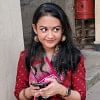
 For all latest news, follow The Daily Star's Google News channel.
For all latest news, follow The Daily Star's Google News channel. 

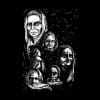

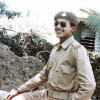
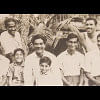
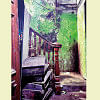


Comments